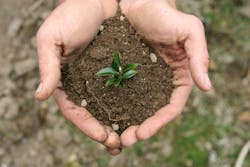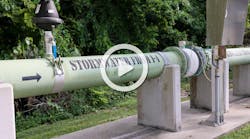Professor to Address Urban Soil Quality, Compost
Sally Brown, associate professor at University of Washington will discuss the use of compost and biosolids in urban agriculture on Tuesday, Nov. 5 at 9:35 a.m. Her talk, "Urban Soil Quality and Compost," is part of the American Society of Agronomy, Crop Science Society of America and Soil Science Society of America Annual Meetings, Nov. 3-6 in Tampa, Fla. The theme of this year’s conference is “Water, Food, Energy, & Innovation for a Sustainable World.”
Urban soils can present various obstacles for gardeners. Sometimes, the soils are contaminated, most commonly with lead. Also, many community gardens are built on vacant lots. Because those soils were misused or abandoned, they are often unhealthy and compacted.
“These soils have been treated like dirt,” said Brown. “They’ve been ignored in terms of growing things, and often buildings or cars have been sitting on top of them.”
With higher populations and limited space, urban areas are not often thought of as places for agriculture. A recent surge in community gardens, though, is bringing agriculture and gardens into the cities. And certain byproducts of urban life—food and yard waste and municipal biosolids—can benefit those gardens, and the soils in them, tremendously.
The U.S. Composting Council recommends that soils contain at least 5% organic matter, a number that soils in many urban areas fall below. The addition of compost and biosolids can raise organic matter and in turn improve the structure of the soil and the amount of water it can hold. Compost and biosolids also slowly release nutrients that crops need.
In addition to making soil healthier, compost can also help decrease contaminants in the soil. By mixing in compost, contaminants are diluted out. And some contaminants, such as lead, often become less hazardous when compost is added to the soil.
“Compost can change the form of the lead in soil so that if you actually do ingest the soil, the amount of lead that’s available to do harm is reduced,” explained Brown.
In Tacoma, Wash., the reuse of a byproduct is already providing great benefits to urban growers. The city provides a biosolids-based soil product to gardeners free of charge giving growers the motivation and tools they need. Since 2010, Tacoma has built nearly 30 new urban gardens. Brown wants to see more cities realize the potential of their byproducts and use them to help residents grow fresh produce close to home.
Source: American Society of Agronomy, Crop Science Society of America, Soil Science Society of America


